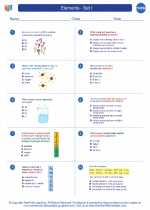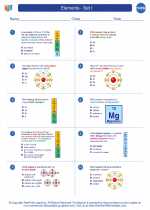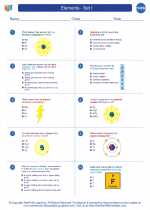Phenomena in Chemistry
Phenomena in chemistry refer to observable events or occurrences that can be studied and analyzed. These phenomena are often related to the behavior of matter and the changes it undergoes. Understanding these phenomena is essential for comprehending the principles of chemistry.
Types of Phenomena in Chemistry
There are several types of phenomena that are commonly studied in chemistry:
- Physical Phenomena: These include changes in state (such as melting, boiling, and freezing), solubility, density, and other physical properties of matter.
- Chemical Reactions: These involve the transformation of substances into new substances through the breaking and forming of chemical bonds.
- Electrochemical Phenomena: These include processes such as oxidation-reduction reactions and the behavior of electrochemical cells.
- Thermodynamic Phenomena: These relate to the transfer of energy as heat and work during chemical and physical processes.
Studying Phenomena in Chemistry
When studying phenomena in chemistry, it is important to approach the topic systematically. Here are some key steps and concepts to consider:
- Observation: Begin by carefully observing the phenomenon and noting its key characteristics, such as changes in color, temperature, or state of matter.
- Hypothesis Formulation: Based on the observations, develop a hypothesis that explains the phenomenon. This may involve proposing a chemical reaction, a physical change, or an underlying principle at work.
- Experimental Testing: Design and conduct experiments to test the hypothesis. This may involve manipulating variables, collecting data, and analyzing the results.
- Data Analysis: Use mathematical and statistical methods to analyze the experimental data and draw conclusions about the phenomenon.
- Conceptual Understanding: Connect the phenomenon to fundamental concepts in chemistry, such as the principles of stoichiometry, thermodynamics, or chemical kinetics.
Real-World Applications
Phenomena in chemistry have numerous real-world applications, ranging from industrial processes to everyday experiences. Understanding these phenomena is crucial for fields such as materials science, environmental science, and pharmaceutical research.
By studying phenomena in chemistry, we can gain insights into the behavior of matter and the underlying principles that govern our physical world.
[Phenomena] Related Worksheets and Study Guides:
.◂Chemistry Worksheets and Study Guides High School. Elements - Set I

 Worksheet/Answer key
Worksheet/Answer key
 Worksheet/Answer key
Worksheet/Answer key
